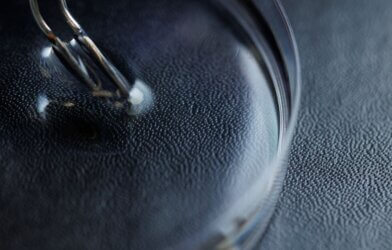Though rare, amyotrophic lateral sclerosis (ALS) is one of the most debilitating and devastating neurological diseases. Making matters worse for patients is how long it can take for diagnosis. That could soon change thanks to research by the Brain Chemistry Labs, Dartmouth Department of Neurology, and the Centers for Disease Control. Scientists have created a new and improved blood test for ALS that could provide significant help with diagnosis efficiency.
The problem with the previous microRNA blood test developed in 2020 is that while effective, it required strict protocols for blood sample shipment and storage. Samples had to be maintained at -80°C, which would prevent some doctors and neurologists from being able to use the test. Now, the research team may have broken down this barrier.
The study was conducted by comparing blinded blood samples from 50 ALS patients from the U.S. National ALS Biorepository to 50 controls. To everyone’s surprise, the genetic fingerprint of five microRNA sequences was able to successfully differentiate between people with and without ALS.
“We were surprised that the microRNA test worked for samples collected from a variety of investigators under differing conditions,” says first author Dr. Sandra Banack, in a statement.
Members of Banack’s team were pleased to discover that temperature was no longer a significant factor for test use. “We expected samples would need to be stringently collected and stored,” says Dr. Rachael Dunlop.
“Apparently, the extracellular vesicles shed into the blood protect their genetic cargo against differing environmental conditions,” adds Paul Cox.
Generally, a year or more passes between symptom onset and diagnosis. There is absolutely no time to waste with ALS progression, because from the time of diagnosis most patients die within 2-5 years, similar to glioblastoma. Neurology researchers estimate that 13-68% of cases have been misdiagnosed. As a result, there should be much more emphasis on finding an appropriate diagnostic measure that can withstand varied conditions in order to widen clinical use.
Looking ahead, the new blood test is being verified at the Brain Chemistry Labs in Jackson Hole, which has applied for a patent on the product. This team hopes to find a trusted diagnostic firm that can develop the test on a commercial level for expansive and global use. The much less-sensitive version of the blood test has the ability to be used by just about any neurology or doctor’s office, as temperature and storage is no longer a worry.
This study is published in the journal Neurological Sciences.












